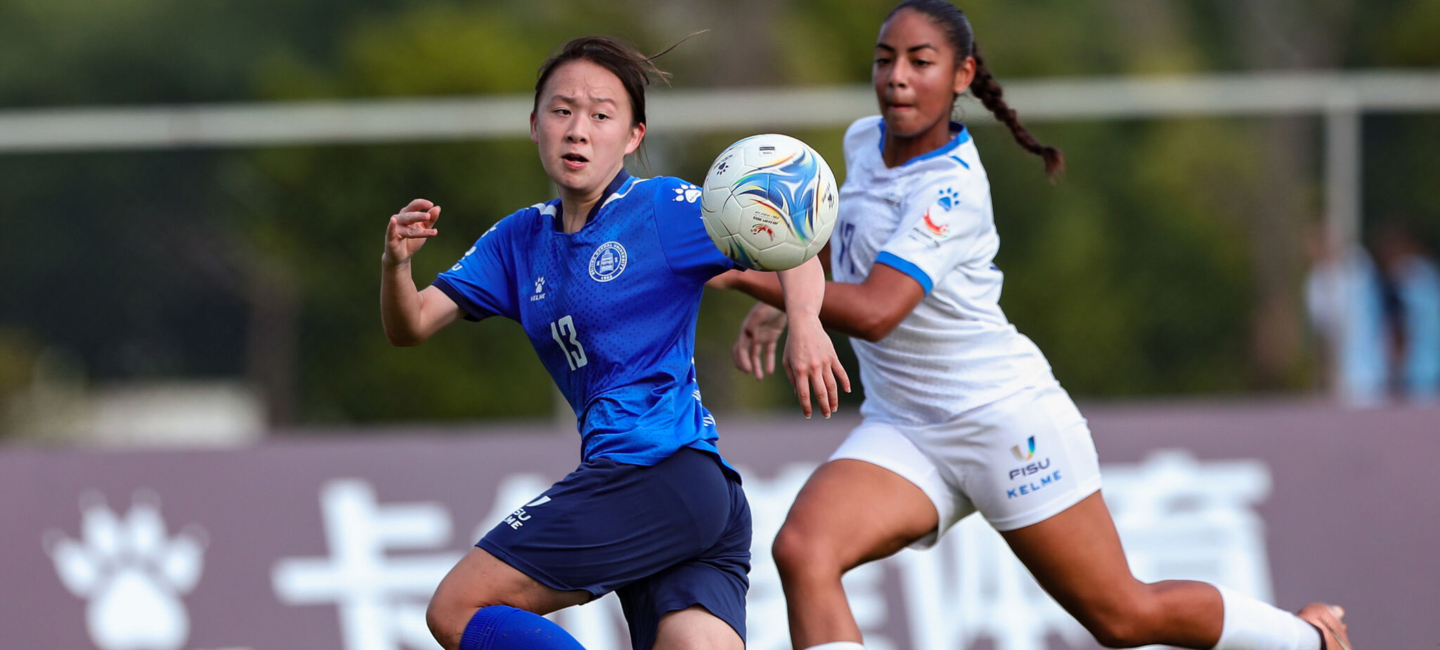From Tamale to Dalian, the University for Development Studies (UDS) has written one of the greatest underdog stories in world university football. Against all odds, the young men from northern Ghana carried the hopes of a nation and an entire continent to the grandest stage, defeating defending champions Paulista University of Brazil 2–1 in extra time to lift the 2025 FISU World University Football Cup in China.
 |
| UDS Team |
UDS began their campaign with determination, edging the University of Sharjah from the UAE 2–1 in a hard-fought opener. Confidence grew as they dismantled Spain’s Ramon Llull University 4–1, announcing themselves as serious contenders.
Their biggest early test came against the reigning champions, Paulista University. Reduced to 10 men after a controversial red card, UDS dug deep, and in stoppage time, Jonas Agyemontor unleashed a rocket to seal a dramatic 1–1 draw. That result sent shockwaves through the tournament and saw UDS top Group C — the first African university ever to achieve such a feat.
The quarterfinals brought a statement performance as UDS swept aside Kyungil University of South Korea 5–2. In the semifinal against Spain’s University of Granada, it all came down to penalties after a tense 0–0 draw. With nerves of steel, UDS triumphed 5–4, their goalkeeper producing two vital saves to book a historic place in the final.
Fate brought UDS face-to-face once more with Paulista University in the final — the giants they had already unsettled in the group stages. The Brazilians struck first, holding their lead until the dying moments of stoppage time. Then came the equalizer: UDS’s captain, Mohammed rose to the occasion, slotting home in the 95th minute to keep dreams alive.
Extra time was a battle of heart and endurance. With seconds remaining, a corner kick swung in from the right with the left boot of Alhassan flew into the net, sparking wild celebrations. UDS had done the unthinkable: a 2–1 victory over the champions, and a new chapter written in African football history.
 |
| UDS Keeper makes save |
This journey was not walked alone. Ahead of the final, former players and football stakeholders rallied in support. Mr. Tony Baffoe, based in China, donated 30 branded shirts. Ex-international Atiku Ibrahim contributed $300. Veteran football administrator W.A. Ibrahim provided supplies before their departure. Each gesture reflected the unity and belief fueling the UDS squad.
From Tamale to Accra, across Ghana and Africa, support poured in. Students, alumni, and football lovers followed every step, turning campuses and living rooms into stadiums of cheers.
From next semester, all KNUST students will take a one-credit course in AI fundamentals.
— KNUST NEWS FILE (@knustnewsfile) September 24, 2025
Announced by VC Prof. (Mrs.) Rita Akosua Dickson, the move is part of KNUST’s new AI strategy to ensure every graduate gains basic AI knowledge. pic.twitter.com/EPbnsMvJ1k
For UDS, this victory is bigger than sport. It is about resilience, belief, and the audacity to dream beyond boundaries. In just their first FISU World Cup appearance, they defied odds, broke continental barriers, and placed Ghana and Africa on the global winners’ table — alongside past champions from Uruguay and Brazil.
Today, UDS is not just a university team. They are world champions. A bragging right they hold against all other universities in Africa.

History of Football in FISU
Long before our era, many cultures played a certain kind of ball game. But contemporary football as we know it today traces back to England in the 1900s, when rugby football and association football branched off on their different courses. From there on, football experienced an increasing professionalisation and popularity first in Europe and later all over the world. However, it was not until 1966 in Galicia that football was included into the programme of FISU.
The first tournament was held in the structure of a European University Championship and eight European teams battled for the first gold medal in university football. During the following years, FISU successfully staged many World University Football Championships, steadily growing in participation figures. At the Summer Universiade in 1979 in Mexico City, football was included as an optional sport and twenty-four teams competed in the tournament. Three years later, FISU staged the final edition of the FISU World University Football Championship, and football was then included as a compulsory sport at the Summer Universiade in 1985 in Kobe (JPN). The greatest surprise at this tournament came from the Democratic People’s Republic of Korea, who took the final against Uruguay.
In 1993, university football was opened for women and Buffalo hosted the first edition of the FISU women’s football tournament where China beat the United States in their home match. In the following years the success of women’s football progressed further. By the time of the Universiade in Beijing in 2001, it was so well-accepted that the Executive Committee of FISU decided to increase the number of women’s teams from 8 to 16, equalling the number of men’s teams. In Shenzhen, in 2011, China beat Japan in a technically fantastic and breathtaking final, delivering a match on the level of a women’s world cup game.
If you’re interested in hearing more from KNUST News File, subscribe to my Telegram and Whatsapp Channels, X (Twitter), Tiktok, Instagram, and Facebook for updates.
